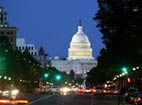Back in August, the Small Business Administration (SBA) announced that it would receive public commentary via the Federal Register website on a proposed new policy that would allow large enterprises that pose as small businesses in order to defraud the government into awarding them with federal contracts usually awarded to small businesses to come forward and still avoid penalties.
The “Safe Harbor from Fraud Penalties” policy may save large companies that claim they “acted in good faith” from paying huge fines, but it could cause small businesses to lose out on contracts worth billions of dollars. The problem of large businesses winning small-business contracts has been known for more than a decade, but until recently not much has been done to rectify the situation.
A survey given by the American Small Business League (ASBL) among more than 2,000 U.S. Chambers of Commerce reported an “overwhelming opposition” to the proposed policy. The Chambers represented all 50 states, and upon questioning, most were appalled that the SBA would propose a policy that removed the stiff penalties from large corporations that committed such fraud.
Section 16 of the Small Business Act states:
“Whoever misrepresents the status of any concern or person as a ‘small business concern,’ a ‘qualified HUBZone small business concern,’ a ‘small business concern owned and controlled by socially and economically disadvantaged individuals’ or a ‘small business concern[s] owned and controlled by women,’ in order to obtain for oneself or another any—(A) prime contract to be awarded pursuant to section 9, 15, or 31; (B) subcontract to be awarded pursuant to section 8(a); (C) subcontract that is to be included as part of all of a goal contained in subcontracting Plan required pursuant to section 8(d); or (D) prime or subcontract to be awarded as a result, or in furtherance, of any other provision of Federal law that specifically references section 8(d) for a definition of program eligibility, shall be subject to the penalities and remedies described in paragraph (2).”
Those penalties include a fine of up to $500,000, 10 years of prison time, or both.
The proposed Safe Harbor policy would overlook all such penalties as long as the fraudulent company says that it “acted in good faith.”
This month, the public comments were concluded, and it has been reported that more than 90 percent of the comments submitted were in opposition. According to a release on Supply&DemandChain Executive, “the SBA received only two comments that favored the new policy and both of those were from law firms that represent large businesses.”
The release also quotes President Obama as stating:
“It is time to end the diversion of federal small business contracts to corporate giants.”
The SBA has not given a statement on what it will do now that the public has declared its discontent with the proposed Safe Harbor policy.
Kim Mays has been editing and writing about IT since 1999. She currently tackles the topics of small to midsize business technology and introducing new tools for IT. Follow Kim on Google+ at google.com/+KimberlyMays6 or Twitter @blumoonky.



